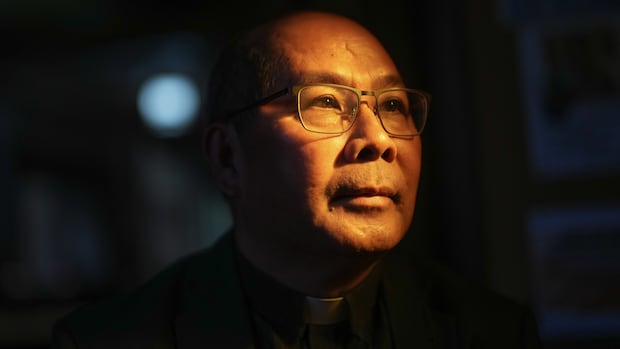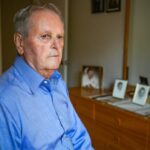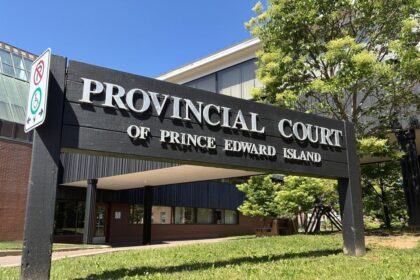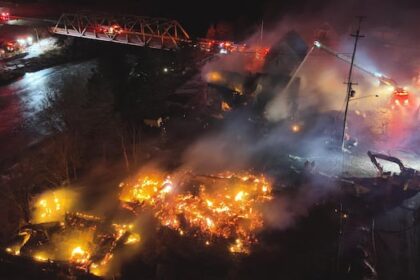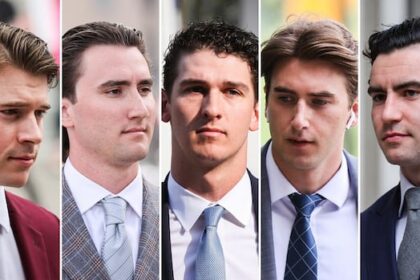The past six months have been a blur for Rev. Francis Galvan.The pastor at Sacred Heart Parish in Delta, B.C., has walked the scene of the deadly car ramming on April 26 at the Lapu-Lapu Day festival in Vancouver, listening to stories of devastated Filipino community members. He has sprinkled holy water at the East Vancouver neighbourhood and attended the memorial for victims at Holy Rosary cathedral.He has hosted gatherings and offered counselling for those reeling from the tragedy that claimed 11 lives and left many others injured.There has been some healing. But Galvan says there is still anger, confusion and sadness.He and others in the Filipino community say the case remains a wound, and while police say all but one of the injured are now out of hospital, some will forever live with the results of the night when an SUV plowed through a crowded street of festivalgoers. Police and first responders are pictured at the intersection of Fraser St, and 43rd Ave, after a police incident at the Lapu Lapu filipino festival in Vancouver, B.C., on Saturday, April 26, 2025. (Ben Nelms/CBC)No date has been set for the trial of Kai-Ji Adam Lo, accused of 11 counts of second-degree murder and 31 counts of attempted murder.”For some people, when the tragedy happened, it’s like the news, and you’ve got other news the next day. But for the Filipinos, this isn’t just news. It sticks with the Filipino community,” said Galvan.RJ Aquino with Filipino B.C., the group that organized the festival and has since been advocating for victims, said that for people with life-altering injuries and other survivors, there may never be an end to this. “Can you ever have closure on losing a loved one? I don’t know,” said Aquino.WATCH | Aquino pushes for government aid for victims:Filipino B.C. chair says Lapu-Lapu Day victims need more government aidThe chair of Filipino B.C., RJ Aquino, is calling for more government support for the victims of Vancouver’s Lapu-Lapu Day festival tragedy. He said survivors and victims’ families are still struggling six months after the killings. He said that the tragedy would not stop Filipinos from celebrating their community. But he stopped short of committing Filipino B.C. to organizing a Lapu-Lapu Day festival in 2026.”I’ll say that there is a desire to continue to gather, to continue to have events like Lapu-Lapu Day,” he said.Asked later if that meant the event was on or off, a spokesperson for Filipino B.C. said it “wasn’t a Yes or No.”A temporary memorial for victims of the Lapu-Lapu festival tragedy is pictured at Mountain View Cemetery in Vancouver this August. (Ethan Cairns/CBC)A proposed class-action lawsuit was filed in B.C. Supreme Court on Thursday by one of the people badly hurt in the car ramming. John Lind’s lawsuit blames the City of Vancouver and the Vancouver Coastal Health Authority and seeks damages. It says the city and its police department failed to protect festival goers, while health authority physicians knew Lo’s mental health and paranoia was worsening but they allowed him to be on “extended leave” from a mental health facility. Galvan said that in Catholic tradition, November is a month dedicated to prayers for the dead, and he would visit the memorial site at Vancouver’s Mountain View Cemetery to light candles to honour the victims.He said he was alerted to the unfolding tragedy on the night of the tragedy by a call from his cousin. Others sent him videos of the aftermath of the ramming.”I saw it once. I couldn’t watch it again. It’s too painful. It’s just too painful,” said Galvan.Rev. Francis Galvan says he was alerted to the tragedy on the day it happened. (Darryl Dyck/Canadian Press)He visited the scene the next day, wearing his priest’s collar. Those on the street went up to him to share their stories of the night before.”It disturbs me a lot in some way, and for those who’ve been there, they couldn’t sleep,” added Galvan. ‘The longest six months’Aquino said he often finds himself reflecting on the tragedy.”I would trade everything to just make sure that didn’t happen,” he said. “I mean it feels like it’s been the longest six months. But it also feels like it just happened yesterday.” He said he visited the memorial this week in a quiet moment of reflection.The site is adorned with Philippine flags, dozens of stuffed teddy bears and handwritten cards. “Being there, I was getting really emotional, getting a little choked up,” said Aquino.Numerous memorials were set up for victims of the Lapu-Lapu Day tragedy. (Ben Nelms/CBC)He says he recalled how political leaders hugged him and shook his hands at the scene of the car ramming.But now, dealing with the aftermath doesn’t seem like their priority, he said.”I would say that grief has turned into frustration,” said Aquino.Filipino B.C. recently called on federal, provincial, and municipal governments to commit funding to victims of the tragedy and their families. It said no level of government had promised to dedicate funding.”And now I want to say that, where are you? And not necessarily for me personally, but for the victims and families,” said Aquino.”It really is a frustrating experience because we were seeing these politicians attend memorials, light candles, and pose for photo ops, but never deliver tangible support, and we kept hearing, ‘Oh, Filipinos are so resilient.’ And then they took our resilience and it became their excuse.”WATCH | Art event marks 6 months since Lapu Lapu tragedy:’Healing Colours’ art exhibit marks 6-month anniversary of Lapu-Lapu Day tragedyThere’s a unique art event happening Friday to mark the six-month anniversary of the Lapu-Lapu Day festival tragedy. Story producer Sophie Woodrooffe spent some time with the organizers to learn how it came to be.The Kapwa Strong Fund for victims and families has raised $2 million, but Aquino said the fund isn’t enough. He said about 40 people had identified themselves as the “most injured,” although emergency officials originally reported that 26 people were taken to hospital.”That really translates to only about $50,000 a person. Does that solve their problems?” asked Aquino.”We’re finding that we’re now in a very resource-intensive part of their recovery. A family may have lost someone who is the main source of income and now they can’t work,” he added. “So, expenses are racking up fast.”A woman prays on Fraser Street for the victims of the tragedy on April 27. (Ben Nelms/CBC)Aquino said different levels of government need to provide long-term, sustainable and tangible support to victims and their families. He said for families that have suffered losses, the last thing they should face is the “burden of a complicated, lengthy system application and bureaucratic hurdles.”Vancouver police say the one person injured in the car ramming who remains in hospital is in stable condition.Among those now recovering at home is 53-year-old Roland Nulada, a father of two. He moved out of Vancouver General Hospital’s rehabilitation centre to his home in Burnaby in early September after the car ramming left him with a brain injury and a broken arm and leg. Carlyn Nulada said her husband now uses a wheelchair. The past month has been tough, with her husband effectively confined to their home because ICBC — the public auto insurer that has been covering some costs for victims — had been slow to install a ramp. Roland Nulada, who is recovering from injuries suffered in the Lapu Lapu festival vehicle attack last month, lies in a hospital bed in Vancouver on May 14. Nulada, who had brain surgery and surgery on a broken arm and leg, can now recognize his family members and his appearance is improving since he regained consciousness on May 4, eight days after the April 26 car ramming that killed 11 people when an SUV drove through a street crowded with festivalgoers. (Darryl Dyck/The Canadian Press)“Roland has been staying at home the whole day, the whole month,” said Carlyn. “It’s depressing to him because he cannot go out.”A GoFundMe campaign had raised about $160,000 for medical and other costs, but Carlyn returned to work as a health-care assistant at Lynn Valley Care Centre on Oct. 1. “We do have bills,” she said. Carlyn said Christmas would be different this year, since they can’t travel to attend any family gatherings. “We don’t have anything planned for Christmas. We don’t have the spirit of Christmas here right now,” she said.Galvan said that while some were still dealing with grief, he had noticed young Filipino Canadians more willing to embrace their heritage since the tragedy.And Aquino said memories of the tragedy would ultimately see the community emerge stronger.”I know that we’ll always be reminded of what we lost,” he said. “We’ll use that reminder to make sure that as we get stronger, we put ourselves in a position to be there for each other, to help each other.”
No closure for Filipino community six months after Vancouver festival tragedy
